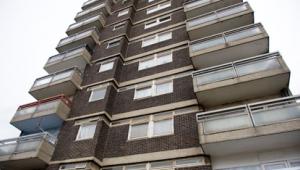By Vivienne Russell | 27 February 2013
Council borrowing rules should be changed to allow town halls to invest more in new homes, housing professionals said today.
The Chartered Institute of Housing’s Budget submission set out a four-point plan for Chancellor George Osborne to follow. It claimed this would provide 100,000 new and refurbished homes across the market and affordable rented sectors, supporting 24,000 jobs and creating £3.7bn of economic activity each year.
One of the four proposals is to raise Housing Revenue Account borrowing caps by an additional £7bn. This could produce an extra 15,000 homes a year over the next five years.
‘The level of borrowing would be well within the levels sustainable from projected rental income and well below total local authority financial capacity, estimated at between £20bn and £27bn,’ the submission stated.
‘Local authorities have a long track record of borrowing prudently and sustainably.’
The CIH also called on the chancellor to increase the budget for the Discretionary Housing Payment scheme to £250m to better support transition to the government’s new welfare arrangements. The scheme provides discretionary support to people who are struggling to pay their rent. It may, from April, be used to help people who are deemed to be under-occupying their council homes and will have their Housing Benefit cut by each room seen as surplus to needs.
CIH chief executive Grainia Long said the welfare reforms due to take effect in April were posing ‘huge challenges’ for social landlords and tenants alike.
‘The four London local authorities trialling the benefit cap report that their DHP resources stand at £8.2m but expect households affected by the cap to see rent shortfalls of £22.4m,’ she said.
‘As the various reforms take effect, not all households will be able to respond immediately by moving to smaller or more affordable accommodation – there are simply not enough smaller homes available. Government should increase DHP funding to £250m per year for both 2013/14 and 2014/15 to allow the payments to play a more effective role in the transition to the new welfare regime.’
The institute also proposes a stamp duty holiday for landlords purchasing empty homes and intending to bring them back into use as rented housing. Its remaining call is for more certainty on affordable housing rents after April 2015.
Long said: ‘The road to economic recovery is proving rocky at best and the government’s own figures show that housing starts dropped by 11% in 2012, highlighting our inability to build the homes we so desperately need.
‘But ministers have an opportunity to tackle both of these issues at once – these four measures would increase the housing industry’s ability to contribute to our national economic recovery while addressing an increasingly chronic shortage of affordable homes.’





















